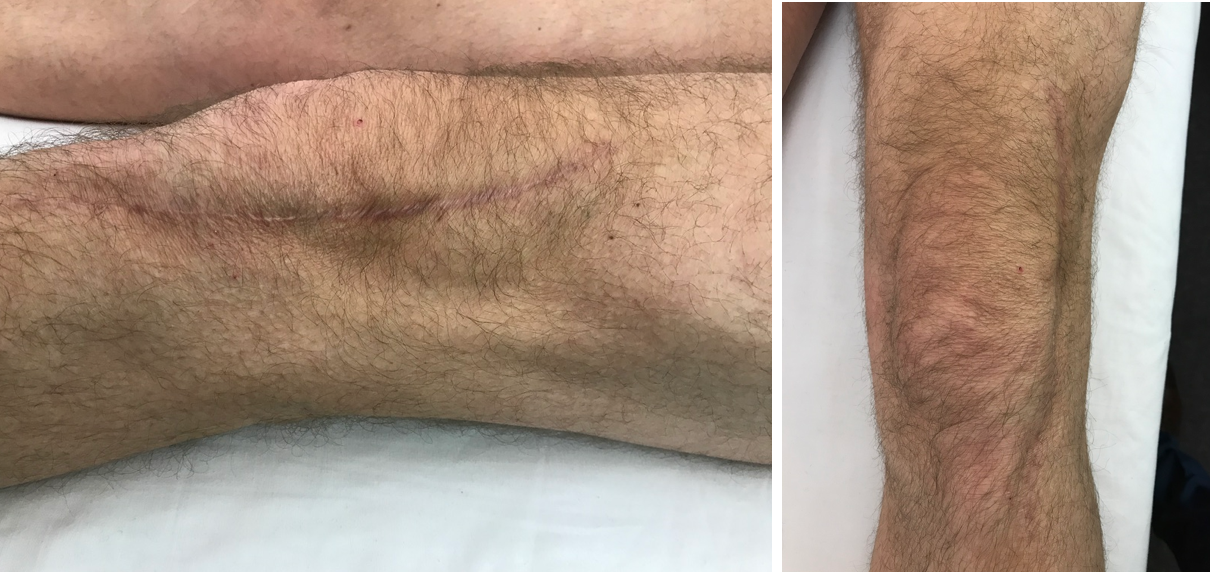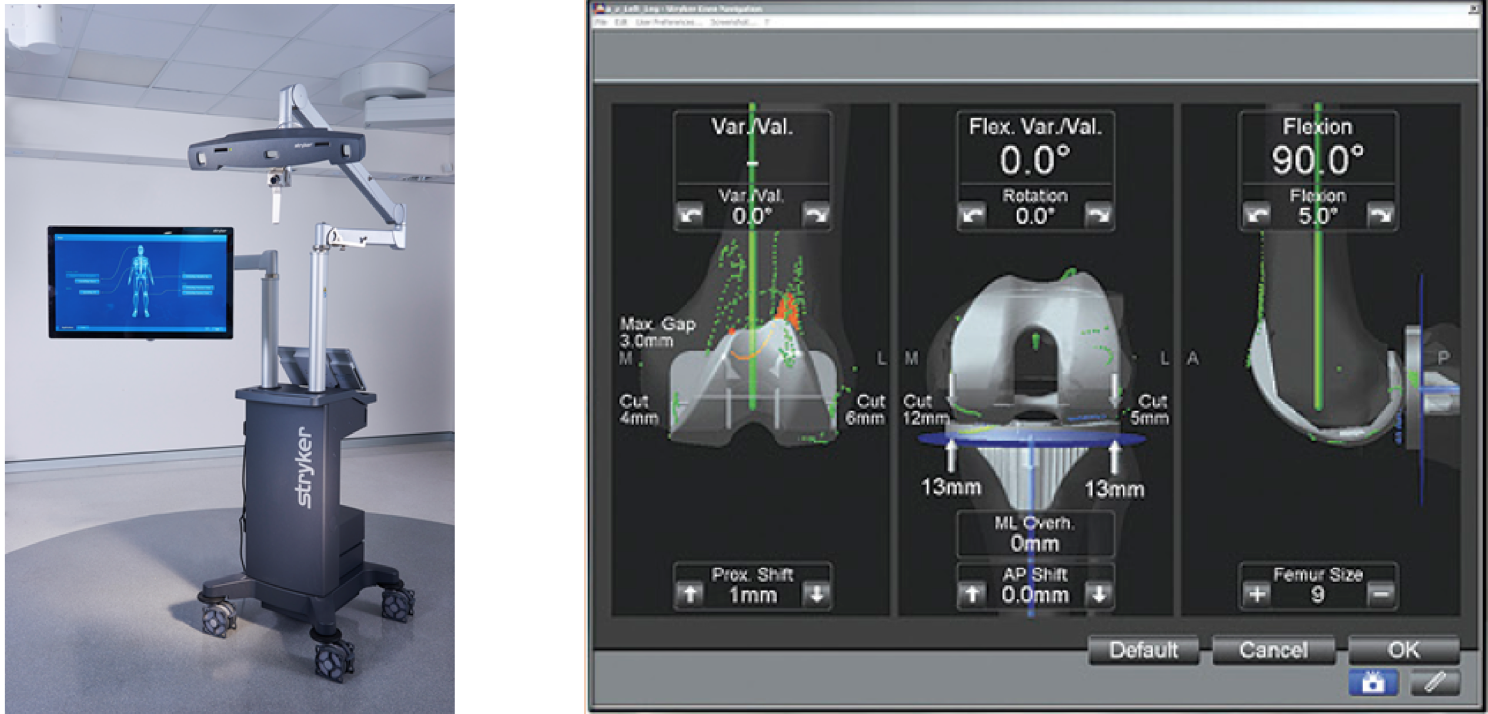Click on the links below to find out more about
Total Knee Replacement Surgery
OVERVIEW
WHY KNEE REPLACEMENT SURGERY MAY BE BENEFICIAL TO YOUR OVERALL QUALITY OF LIFE
If your knee is severely damaged by arthritis or injury, it may be hard for you to perform simple activities, such as walking or climbing stairs. You may even begin to feel pain while you are sitting or lying down. Damage caused by knee arthritis can lead to severe discomfort, impairing your overall quality of life. If nonsurgical treatments like medications and using walking supports are no longer helpful, you may want to consider total knee replacement surgery
Joint replacement surgery is a safe and effective procedure to relieve pain, correct leg deformity, and will help you resume normal activities. To discover whether you’re a suitable candidate for knee replacement surgery, please arrange a consultation with Dr David Slattery at one of his Melbourne based consulting rooms.
Your knees are the largest joint in your body and the most easily damaged, so it makes sense that when you need surgery, you need a highly trained and experienced knee specialist. Dr David Slattery is a highly regarded expert orthopaedic knee surgeon based in Melbourne and specialising in knee replacements for over 10 years. His fellowship training with British, European and Australian orthopedic specialists has given him practical experience with patients requiring a variety of reconstructive knee surgeries. Dr Slattery is always focussed on providing his patients with the best chance at a full recovery, after every treatment.
ANATOMY
Understanding the knee replacement process
Dr Slattery uses a lateral incision for knee replacement surgery, as this heals very cosmetically, and allows patients to kneel on their knee replacement. This also reduces numbness at the front of the knee after surgery.
Although this procedure is safe and effective, as with any surgical procedure, total knee replacement surgery comes with its own set of recovery and risk factors. Dr Slattery will discuss these with you during your consultation and will give you all the information you require to make an informed choice, helping you make the right decision regarding total knee replacement surgery.

Left, Normal Knee. Middle, Knee affected by severe arthritis. Right, Total Knee Replacement – The arthritic cartilage and underlying bone has been removed and resurfaced with metal implants on the femur and tibia, and a plastic spacer between them.

Typical scars on the outside of the knee at 3 months after surgery.
3D Computer Guided Surgery
Dr Slattery is skilled in the use of 3D computer guided surgery, which is where a 3D map is generated of your knee during the operation. Then, a robotic arm assists with the knee replacement, making highly precise cuts are made and the knee implants are positioned accurately.
Whilst it may take slightly longer than traditional knee replacement, it allows the fine tuning of your knee and can give you improved long term survival of your knee replacement.

Dr Slattery also utilises 3D Printing of Patient Specific Instrumentation for total knee replacement. This technique involves 3D printing models of your knee with the use of CT or MRI pre operatively, then generating patient specific guides to assist during your operation to assist with implant positioning.
How long does it take to recover from a knee replacement?
From Day 1, you will be able to move and balance with the assistance of crutches and our physiotherapy team. Some discomfort is expected, however after the first or second week this will begin to subside. By 4-6 weeks, patients are generally capable of walking unassisted, and by 12 weeks, there is significant improvement. Patients will continue to improve with strength, walking and balance up to 1-year post surgery.
What is the best age to have a knee replacement?
Knee replacements are generally recommended due to pain or disability, rather than a person’s age. Typical age ranges are between 50-80 years old, however orthopaedic surgeons will evaluate patients on an individual basis.
Is a knee replacement a major operation?
Knee replacement is considered a major operation, however it is one of the most common orthopaedic operations due to its excellent outcomes.
How painful is a knee replacement?
Discomfort is common in most surgical procedures, however due to the care taken by skilled surgeons and the application of anaesthesia, great measures are taken to mitigate pain experienced. There is normally some discomfort for a few weeks after surgery but this subsides over time.
How do you sleep after a knee replacement?
To help prevent further discomfort, be sure to sleep with a pillow between your knees to cushion any movement. Otherwise, ensuring your pain is under control is the best thing for a good night’s sleep.
Are you awake during a knee replacement?
No, patients are either under a general anaesthetic or else regional anaesthetic with sedation so that they are not aware of the operation.
Can you walk after knee replacement surgery?
You will be able to get up and move on the first day after the surgery with the use of crutches. After roughly 4-6 weeks, patients generally find themselves comfortable to walk unassisted.
How long does it take to recover from a knee replacement?
From Day 1, you will be able to move and balance with the assistance of crutches and our physiotherapy team. Some discomfort is expected, however after the first or second week this will begin to subside. By 4-6 weeks, patients are generally capable of walking unassisted, and by 12 weeks, there is significant improvement. Patients will continue to improve with strength, walking and balance up to 1-year post surgery.
What activities can you not do after knee replacement?
Most patients are able to walk, play golf, tennis, swim, bowl and do other moderately intense activities. Jogging, running and higher intensity sports are somewhat more difficult. Dr Slattery utilises a lateral incision for total knee replacement which allows patients to kneel and bend more effectively after a knee replacement
Can you kneel down with a knee replacement?
Yes, due to Dr Slattery using a lateral incision that preserves nerves at the front of the knee, patients are normally able to kneel.
Can I climb stairs after knee replacement?
Yes, during your rehabilitation you will be taught how to go up and down stairs.

Dr David Slattery
FRACS MBBS (Hons) LLB FAOrthA
Dr David Slattery is an orthopaedic surgeon based in Melbourne with over 10 years of experience, with a special focus on hip and knee joint preservation and replacement. With qualifications in both medicine and law, he brings a unique and comprehensive approach to patient care. His surgical techniques are minimally invasive and evidence-based, designed to reduce pain and enhance recovery.
Trained in leading institutions across Europe and the USA, Dr Slattery offers advanced treatments for a wide range of joint conditions. He is deeply committed to patient outcomes and takes pride in tailoring treatment plans to each individual. Whether you’re an athlete or seeking relief from chronic joint pain, his goal is to restore function and improve your quality of life.







